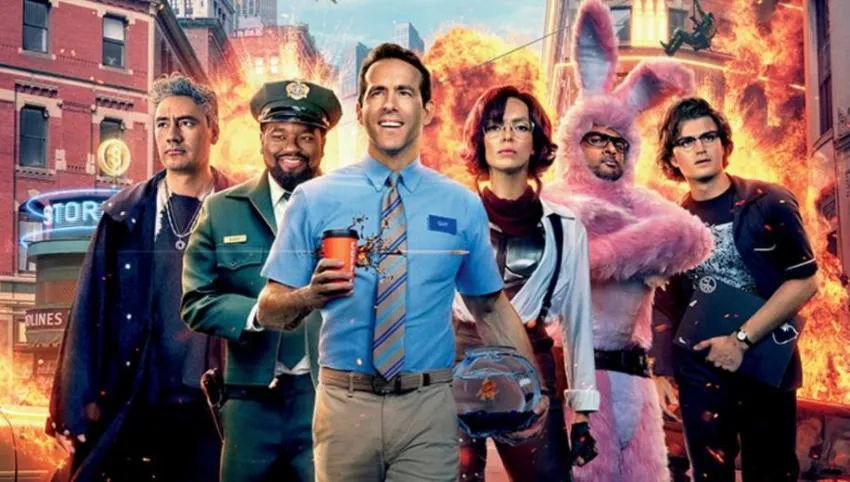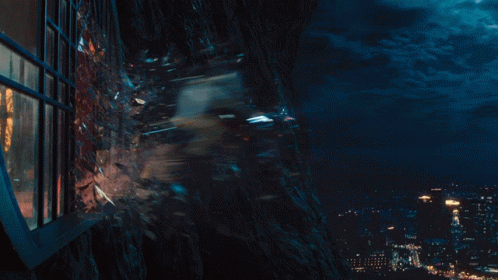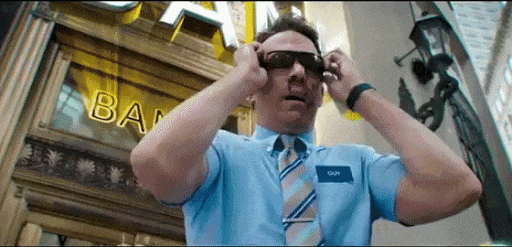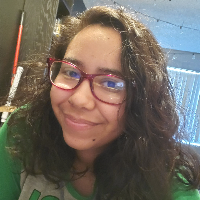The Philosophy Of The Movie "Free Guy": On Reality, Purpose, And Change

Most simulation movies have taken place in video games as our favorite idea from our technological advancement. However, they’ve involved humans living in videos games, like Ready Player One. Even the Japanese show Sword Art Online centers on living in a video game.
But in Free Guy, Guy belongs to a video game as an NPC. This idea is new to the gaming genre but not new to The Truman Show. If you haven’t seen the movie, The Truman Show is about a man named Truman discovering that his world is artificial by making connections that he’s on a live tv show.
At the end of the movie, Truman escapes the show to enter reality, which is an option Guy doesn’t have since he artificially belongs to the game Free City as an NPC. In other words, as movies have played with the simulation theory itself, Free Guy has played with the idea of being fake instead.
Though it should be noted the question about reality or the simulation theory, aka The Matrix, was initially asked by the French philosopher Rene Descartes in the 17th century. The idea came from the unreliability of his senses to process information, making him question his perception of reality and knowledge.
At the same time, this question brought along his famous phrase cogito ergo sum, meaning “I think, therefore I am” since the one thing Descartes couldn’t doubt was his existence, which is an idea that’s centered and connected to the question of purpose in Free Guy.
Guy Is An NPC, So What?
The Guy doesn’t know he’s an NPC, nor does he make the discovery himself. Millie, a gamer, had to tell Guy he was fake, making his world collapse.
But when Guy goes to his best friend about it as a hypothetical, he gains perspective when he tells him, “So what if I’m fake?” He goes on to say that it doesn’t matter since he knows the moment he’s having with Guy is real.
This statement alone changes Guy’s perspective of reality from being anxiety-inducing to indifference since it shouldn’t be something he has to worry about when his existence is real. But this message is also sent out to the audience since the question of reality can lay a heavy burden on people.

Guy Develops Purpose By Living.
However, before Guy found out he was an NPC, he felt stuck in his life. He was happy since he lived in a great city, but it was mundane, and he wanted more.
This may seem like a glitch of him coming to life, but he was programmed to feel this way until he met the girl of his dreams. This was Millie, so when he runs into her, he starts taking charge of his life by living like a gamer, making it the real marker of when he started gaining sentience.
And since NPCs just follow their created program, Guy stepping out of his code shows that real living is doing what we truly want with our lives.
The media displays how someone’s life can have happiness and purpose, which a lot of it has to do with these weird must-do milestones of getting an education, getting married, and having kids when that’s not a life anyone has to live if they don’t want to.
In other words, living life is about how you want to live, not how society says how you should live it. The Guy does this by living like a gamer since it has been a desire of his to follow. But since the gamer role is a lifestyle that exists in his society, showing it's something he wants and gets shows that even if what someone truly wants is an accepted lifestyle in society, like being a mother or a wife, it doesn’t make them a sheep.

Free Guy Displays The Change An Individual Can Make.
While Guy starts living like a gamer, it was stated that the gamer life was exclusive to the people with sunglasses, which is the distinguishing element of real gamers, making people without them NPCs.
With that said, the people in glasses, the gamers, control Free City by doing whatever they want while the NPCs are forced to live their programmed lives. This seems like a parallel to real life with the government and the affluent controlling society with doing whatever they want, while regular citizens are limited from the system they’ve created.
Yet Guy’s interactions with other NPCs spawn their sentience, which makes them do new things. This is because Guy was artificial coded to come to life once he saw Millie, causing a chain reaction among the NPCs he interacted with. So even though Guy was coded to be alive, Guy shows how an individual’s small acts can cause change among others.

Guy also gathers NPCs to stage a walkout during their elimination, showing the change that can be created when more than one person joins in protest since their strike created international attention.
The Guy may have revealed the stolen intellectual property in the game, but attention to it wouldn’t have been possible without the NPCs walkout, which shows that the NPCs are more than a coded program for gamers to play with. In translation, this theme is centered on civil rights being messed and played with by the government for their advantage, but how citizens will fight for them.
In the movie, this is also paralleled with the corporate world stealing two game developers, Millie and Keys’, intellectual property by labeling it as their own. This, in turn, affected their lives since Keys ended up being the company’s glitch fixer instead of being known as the programmer and developer of Free City. It is then through his ruined dreams that shows how the government controls and limits citizens’ lives.
However, Millie fights for her rights by placing a lawsuit against the company and searches for evidence in the game. Lucky, through the live stream of Guy finding the evidence, Millie was able to win her lawsuit, which displays the strength that citizens have towards their rights.
So even though Free Guy is meant to be enjoyed as a fun movie, it encourages its audience to live the way they want. Because despite reality, whether we are in a simulation or not, our experiences are real, so we should make the most of it by living the way we want.
While the message of purpose isn’t clear since no one can indeed find that answer, the question is ironically answered with living. While we can never know the purpose of being alive, we should live life the best we can, which can ultimately be our purpose.
And since living comes with barriers from oppressive systems, change can be created with small and big acts that inspire individuals and groups of people. Either way, interactions and movement for change create more room for others to have the ability and rights to do what they want and live better lives.
Opinions and Perspectives
I love how Free Guy explores the existential themes in such a fun way. The idea of an NPC becoming self-aware really makes you think about consciousness and free will
Actually found myself relating to Guy more than I expected. Sometimes we all feel stuck in our daily routines, questioning if there's more to life
The parallel between NPCs and real-life societal control is pretty clever. It's not just about a video game character, it's about breaking free from systems that limit us
I disagree about the Truman Show comparison. The situations are completely different since Guy is artificial while Truman is human. That changes everything about their existential crisis
What I found fascinating was how Guy's acceptance of being fake actually freed him. Sometimes accepting who we are is more important than what we are
Makes me wonder about all those NPCs I've killed in video games over the years... I feel kind of bad now!
The way Guy inspires other NPCs to wake up reminds me of how real social movements spread. One person's courage can spark change in others
Interesting point about purpose coming from living rather than searching for it. I've always struggled with finding my purpose, but maybe I'm overthinking it
You've got to appreciate how they balanced heavy philosophical concepts with humor. Not many movies can pull that off
I really connected with the message about living life your own way instead of following society's script
The Descartes connection is brilliant but I think they missed an opportunity to go deeper with the simulation theory aspect
As someone who works in gaming, I love how they portrayed the relationship between players and NPCs. Really makes you think about game design ethics
What struck me most was the authenticity theme. Guy's friend saying their moment was real regardless of being fake hit home
The corporate theft subplot feels especially relevant today with all the AI and intellectual property debates happening
I think people are reading too much into it. It's just a fun movie about a video game character
That's missing the point completely. The best comedy often carries deeper meanings, and this film clearly has layers of social commentary
The movie made me question my own daily routines. Am I just following a program like an NPC?
I couldn't help but notice the critique of toxic gaming culture too. The way some players treat NPCs reflects real online behavior
My favorite part was how Guy's growth wasn't about becoming human, but about becoming more himself
The whole sunglasses thing as a symbol of privilege and power was pretty on the nose, but it worked
Anyone else see parallels with Plato's Cave allegory? Guy literally breaks free from his limited perception of reality
Love how the film suggests that even programmed feelings can be genuine. Makes you think about the nature of emotions


